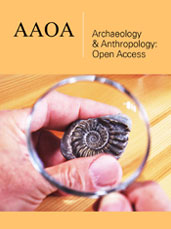- Submissions

Abstract
Archaeology & Anthropology: Open Access
Connection among Water, Agriculture, and Human Rights, and Its Concerns in Bangladesh
-
Open or Close M Anwar Hossen* and M Rafiqul Islam
Department of Sociology, University of Dhaka, Bangladesh
*Corresponding author: M Anwar Hossen, Professor, Department of Sociology, University of Dhaka, Dhaka
Submission: August 14, 2017; Published: October 16, 2017

ISSN: 2577-1949Volume1 Issue1
Abstract
The Ganges Basin communities in Bangladesh are entirely dependent on the Ganges River flow for their agricultural production; river flows determine whether most people will have access to employment, food, education, housing, and health care. For the vast majority of people in this region, this production includes the ability to match cropping strategies effectively to river water flows during both rainy and summer seasons, to utilize a variety of common property resources, such as fisheries, and to augment subsistence food production with some shareholder activities, and agricultural employment. However, this pattern of agricultural production is increasingly undermined by government driven processes of water and agricultural development, many of which, now, follow explicitly neoliberal economic agendas. Based on this argument, this paper explores a research question: what are the concerns for the government’s water and agricultural policies in the connection among water, agriculture, and human rights at Chapra in Bangladesh? To address this question, this research paper focuses on water and agricultural development approach based on my PhD fieldwork experiences in 2011-12 at Chapra of the Ganges Basin in Bangladesh. The findings of the paper point out that the majority of the people living in Chapra, as in many other Ganges Basin communities, depend on their own agricultural production to protect the human rights, and this production, in turn, depends on water resources that are, increasingly, under the control of elite interests and a centralized state bureaucracy. The paper argues that only the inclusion of community voices over water policy formulation and implementation processes can protect their human rights in Bangladesh.
 a Creative Commons Attribution 4.0 International License. Based on a work at www.crimsonpublishers.com.
Best viewed in
a Creative Commons Attribution 4.0 International License. Based on a work at www.crimsonpublishers.com.
Best viewed in 







.jpg)






























 Editorial Board Registrations
Editorial Board Registrations Submit your Article
Submit your Article Refer a Friend
Refer a Friend Advertise With Us
Advertise With Us
.jpg)






.jpg)













.bmp)
.jpg)
.png)
.jpg)














.png)

.png)



.png)






